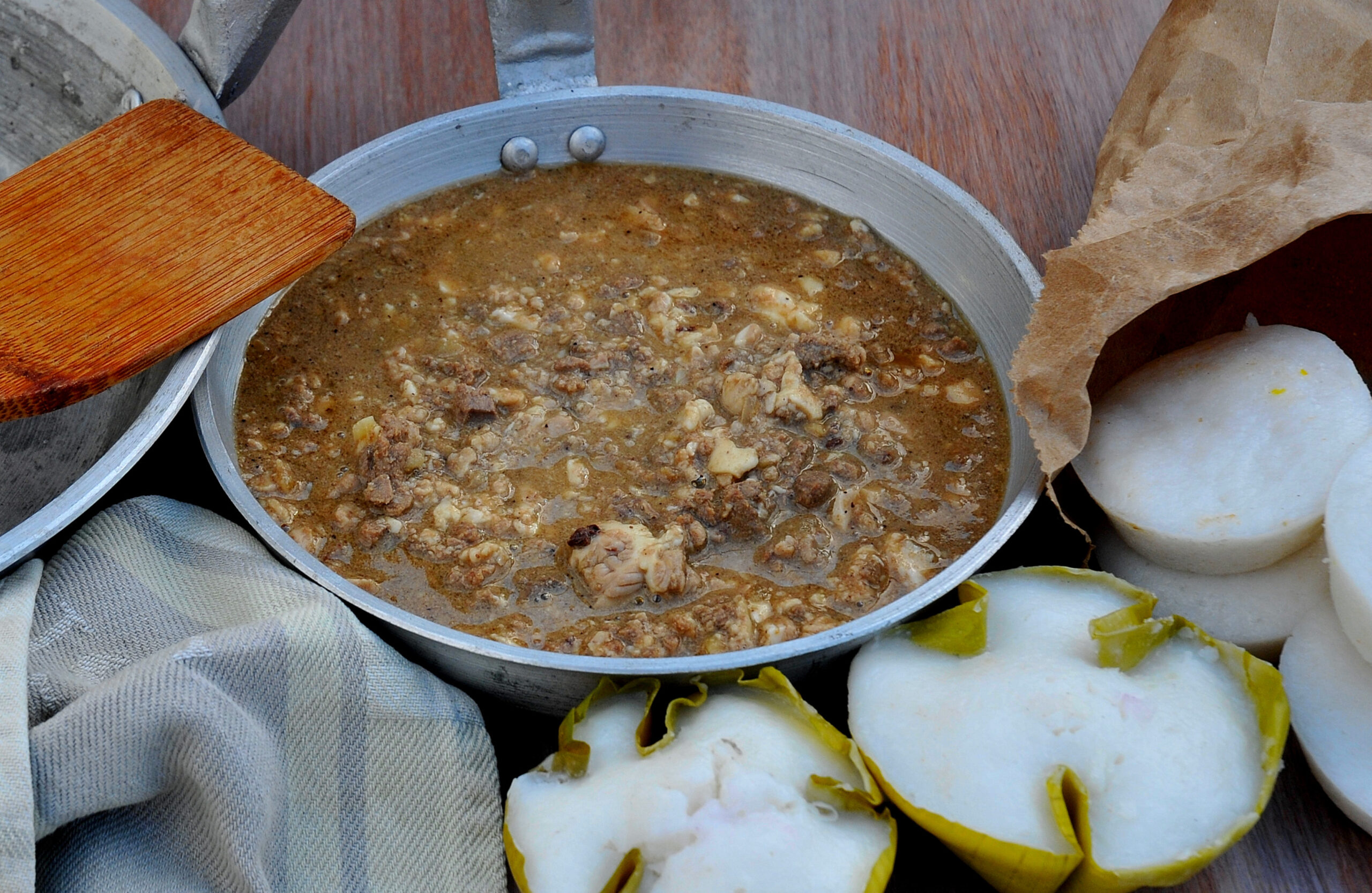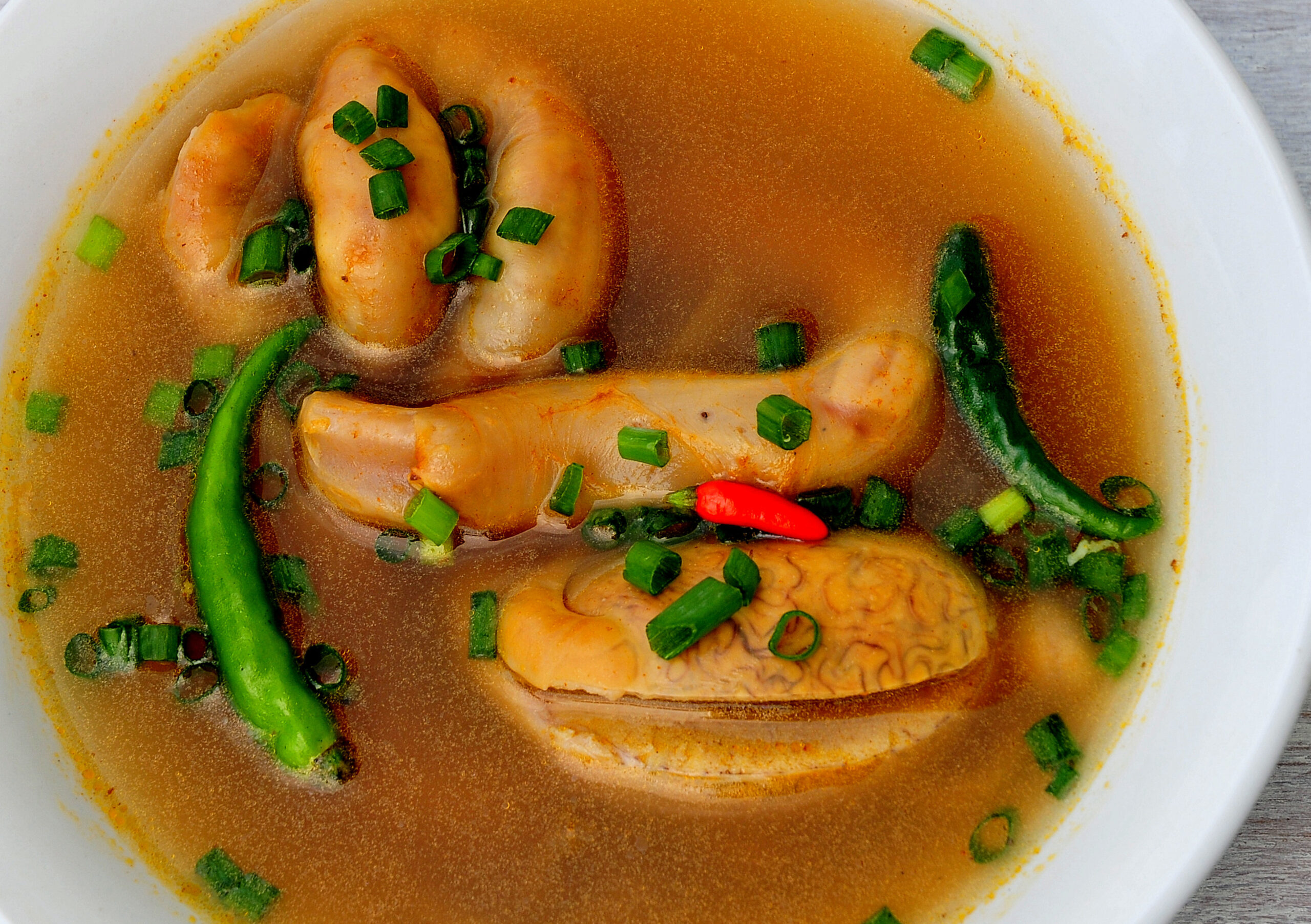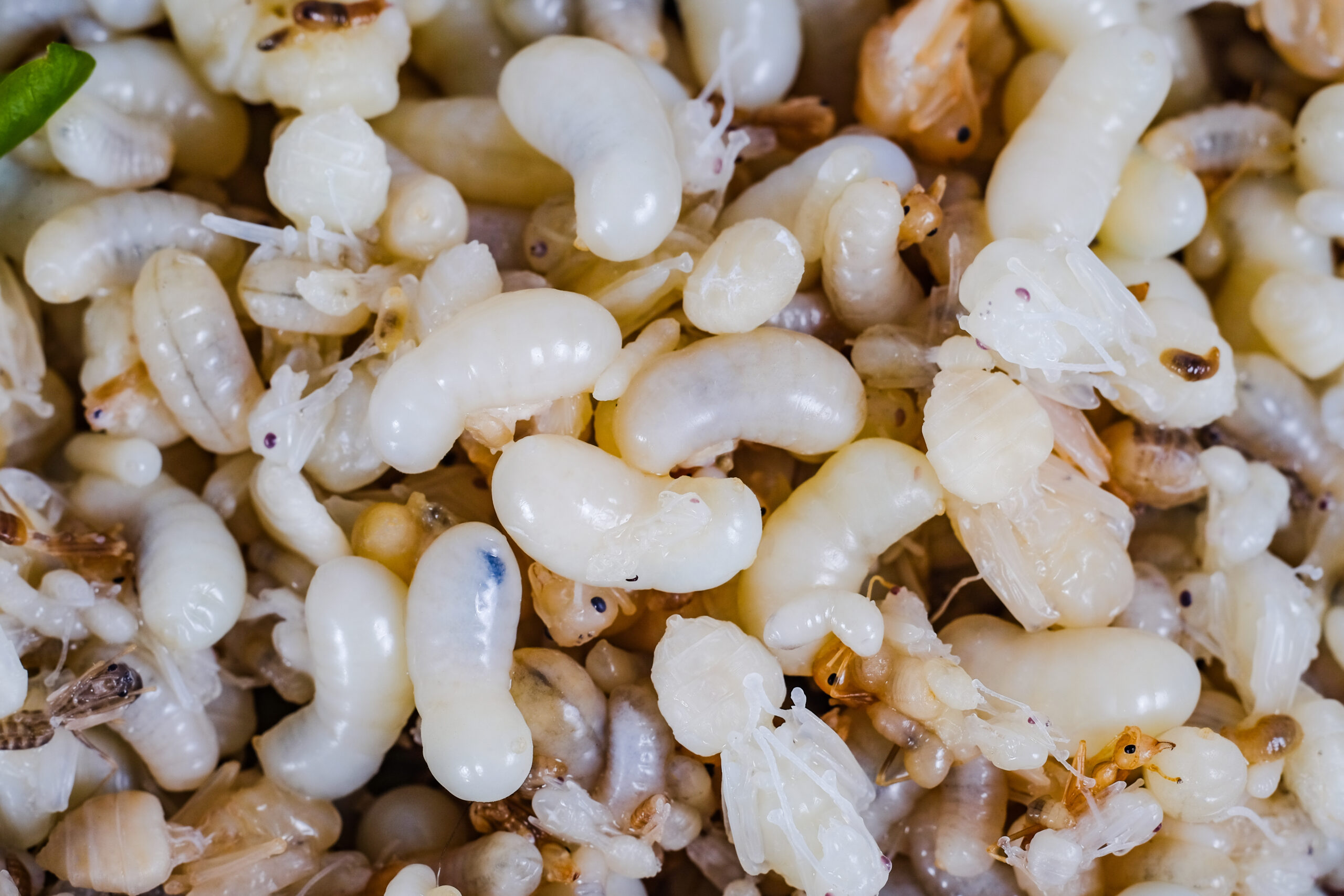In today’s era, trying exotic foods has become a hobbit for some to discover a province or country.
In the Philippines, balut is one of the most well-known exotic foods to try because of its mouthwatering soup, commonly paired with salt or vinegar. Hence, this traditional street food had other versions as time passed, such as grilled balut.
But did you know that aside from balut, there are still other exotic Filipino foods that you should not miss out on?
As the country also celebrates Filipino food month this April, here are some of the bizarre and unusual foods and dishes from the Philippines to try!
1. Tuslob Buwa

This dish originally came from Cebu City and has been featured on different international shows.
Tuslob Buwa, meaning “to dip in bubbles,” is a soup mixed with pork brains, soy sauce, oil, shrimp paste, and seasonings. The soup mixture was described by locals as being a watery stock that changed into a thick mixture if put on a continuous stove fire.
According to those who’ve tried it, the pig brain is so much tastier when paired with the province’s famous hanging rice, which you can buy for less than Php 10.
2. Soup Number Five

A dish that is intrigued by many, soup number five is a famous dish that originated in the country.
The reason behind the “soup number five” name is that a local restaurant came up with the name for their menu, which was adopted by other people to describe the dish as well.
Soup number five is said to be made from the bull’s sexual organs, mainly its testes. This is normally prepared thoroughly by cleaning the organs and boiling them in water for several hours until tender.
The meat is cut into small pieces, and the soup is made of mixed garlic, onion, ginger, bird’s eye chili, fish sauce, and other spices.
3. Ant Eggs

Ant Eggs, or Abuos in Ilocano, is a seasonal dish that is only available from March to June since it is harvested from the tropical rainforests in the province of Abra.
It can be eaten any way you choose: raw, sauteed with garlic, or cooked in adobo style, depending on your preference. The dish was described by locals as having a soft texture and a buttery, nutty flavor.
4. Tamilok
Named after woodworms, Tamilok can be found in coastal areas of Palawan and is commonly known as, “woodworms”. Despite its appearance, Tamilok has the most delectable taste you could ever imagine.
They have the same slimy texture as oysters, but Tamilok tastes sweeter and milkier. Hence, the Tamilok was described as having a more appetizing taste than clams.
In some places, it is referred to as “naval shipworms” because it was said to be the staple meal of those who traveled using wooden ship hulls.
Adobong Camaro
This Kapampangan dish is made with crickets, mixed with vinegar, garlic, onions, chili peppers, and tomatoes, or simply cooked in adobo style.
For the locals in Pampanga, adobong camaro is not as exotic as what others may refer to because they commonly serve it in their households.
If you are planning to taste this food, you might compare it to an international dish because it was described as being similar to the Mexican delicacy Chapulines,” which are toasted grasshoppers seasoned with salt, chili, and lime juice.
Ebun Barag
This last dish also originated from Pampanga, just like the Adobong Camaro. This dish is known to be made from the eggs of monitor lizards.
Locals said that it is traditionally prepared through a soft boiling squeeze through a small hole and is eaten in different ways.
You may pair this dish with rice or sauce, but you can also enjoy it alone.
Not only for tourists but also for locals, individuals should also discover more exotic delicacies across different provinces. This will not only satisfy your stomach but also enrich your knowledge about the nation’s culture.









